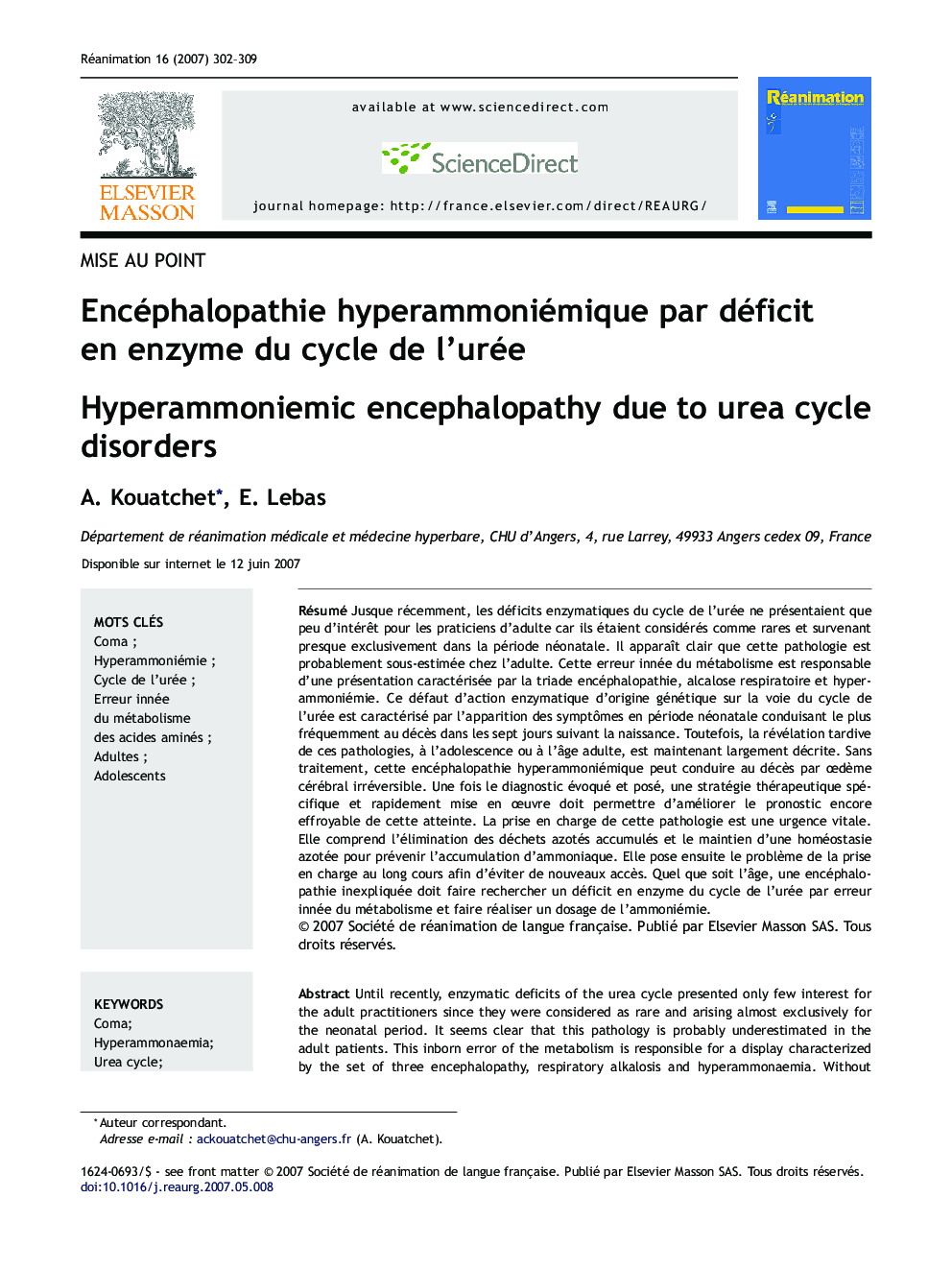| Article ID | Journal | Published Year | Pages | File Type |
|---|---|---|---|---|
| 2613057 | Réanimation | 2007 | 8 Pages |
Abstract
Until recently, enzymatic deficits of the urea cycle presented only few interest for the adult practitioners since they were considered as rare and arising almost exclusively for the neonatal period. It seems clear that this pathology is probably underestimated in the adult patients. This inborn error of the metabolism is responsible for a display characterized by the set of three encephalopathy, respiratory alkalosis and hyperammonaemia. Without treatment, this hyperammoniemic encephalopathy can lead to the death by irreversible cerebral oedema. A specific and quickly implemented therapeutic strategy has to allow to improve the still terrible prognosis of this pathology. The treatment of this pathology must be organized in extreme urgency because any delay is going to engage the forecast. It includes the elimination of the accumulated nitrogenous waste and the preservation of a nitrogenous homeostasis to prevent the accumulation of ammonia. It raises then the problem of the long term management to avoid new accesses. It poses at first and especially the problem of the evocation of the diagnostic, the main obstacle being the misunderstanding of this diagnostic possibility at the adult. An unexplained encephalopathy has to make look for a deficit in enzyme of the urea cycle by inborn errors of the metabolism and make realize a dosage of the ammonemia.
Keywords
Related Topics
Health Sciences
Medicine and Dentistry
Emergency Medicine
Authors
A. Kouatchet, E. Lebas,
